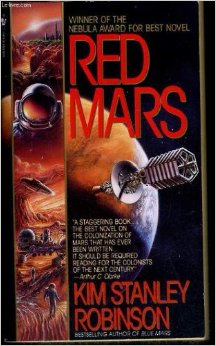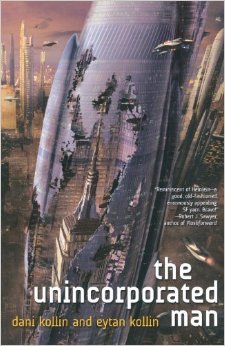Is Fantasy Inherently Not Political?

 Recently, a columnist in The New Yorker discussed how literary work has ceased discussing politics and has accepted the prevailing economic assumptions and political models. He noted that the political discourse that is happening in literature is happening in science fiction and went on to illustrate forward-looking political principles featured in Kim Stanley Robinson’s Mars series.
Recently, a columnist in The New Yorker discussed how literary work has ceased discussing politics and has accepted the prevailing economic assumptions and political models. He noted that the political discourse that is happening in literature is happening in science fiction and went on to illustrate forward-looking political principles featured in Kim Stanley Robinson’s Mars series.
It’s easy to think of other examples of science fiction as a vehicle for political argument, all the way back to H.G. Wells and into today with the Unincorporated Man by Dani and Eytan Kollin, or Saturn’s Children by Charles Stross, or too many to list. The Libertarian Futurist Society even offers the Prometheus Award annually for libertarian science fiction.
A small Canadian publisher, Bundoran Press, is starting to carve itself out a niche with its concern with science fiction as a vehicle for political discourse with an Aurora-winning anthology called Blood & Water*, about the resource wars to be fought in the 21st century, and a new one, already available for pre-order, called Strange Bedfellows: An Anthology of Political Science Fiction. So, without a doubt, science fiction is actively and increasingly involved in political discussion.
So, does the same go for fantasy? On Wednesday, Black Gate columnist M. Harold Page tackled the question, with his article Why Medieval Fantasy is Not Inherently Conservative (or Inherently Anything Political).
What about more contemporary fantasy? I tried to think of some examples, but I’m not sure the zombie apocalypse can count as a legitimate part of a political argument. I asked David Hartwell, who has experience anthologizing the year’s best science fiction as well as the year’s best fantasy. He viewed fantasy as being more concerned with pastoral situations and identity politics.